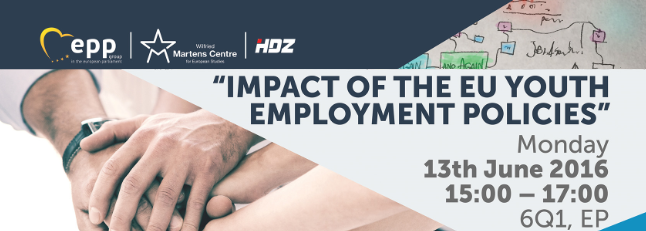The MobiliseSME Final Conference "The Future of a Mobility Scheme for SMEs and their Employees in Europe" will be the occasion to present the findings of the MobiliseSME pilot scheme for the mobility of employees of SMEs in Europe.

EU Peace Event
Organiser type
Section
Event Location
Event Description
The news:
"Bringing Divided Communities Together - Sharing the experience of the EU PEACE Programme", will be held in Brussels, Charlemagne Building, on Thursday 31 January 2013. 9.00-13.00.
How is EU Regional Policy helping to reconcile divided communities? The answer may not seem obvious. But in Northern Ireland and the Border Region of Ireland the EU-funded Peace Programme has been doing just that since 1995.
This gathering will take stock of these achievements. It will also explore how other parts of Europe and beyond- where building trust between communities is a challenge - might adapt the peace-building techniques developed under the Peace Programme.
The event:
It is hosted by EU Commissioner for Regional Development, Johannes Hahn. Joining him will be First Minister of Northern Ireland, Peter Robinson, Deputy First Minister, Martin McGuinness and Brendan Howlin Minister for Public Expenditure and Reform from the Republic of Ireland.
Three projects from Northern Ireland will showcase their experience in bringing communities together. A discussion will follow on whether these kinds of projects can be transposed into other European and international settings. The following regions will have participants at the event: Cyprus, the Balkans, the Basque region, and Libya.
The background:
The PEACE III Programme for Northern Ireland and the Border Region of Ireland is part-funded by the European Union (€225 million from the EU with further national contributions of €108 million) through its Regional Policy funds. The main aims of the PEACE III Programme are to reinforce progress towards a peaceful and stable society and to promote reconciliation by assisting operations and projects which help to bring communities together and contribute towards a shared society for everyone.
The launch of the PEACE Programme in 1995 was the direct result of the European Union’s desire to respond positively to new opportunities in the Northern Ireland peace process during the paramilitary ceasefire announcements. Since then the EU has provided additional financial assistance through the PEACE II Programme as well as the current PEACE III (2007-2013), with a total of €1.3 billion. The programme's strong emphasis on bottom-up involvement brings communities together on a local level to create a shared vision of society, to work together on shared community infrastructure and to acknowledge and deal with the past.
Related Events
MobiliseSME Final Conference -The Future of a Mobility Scheme for SMEs and their Employees in Europe

Empowering civil society to act and grow in Europe
Social Platform – the European network of social NGOs
The European Confederation of Independent Trade Unions (CESI) and the Bertelsmann Stiftung
hereby invite you to the next

“Jobs of tomorrow: what educationals skills do we need?”
The Great Recession and the European debt crisis have reignited the debate about deeper fiscal integration in the Eurozone. Supporters of further integration argue that fiscal risk sharing is necessary to increase the resilience of the European economy against macroeconomic shocks.
The European Confederation of Independent Trade Unions (CESI) and the New European Business Confederation (UNITEE) in collaboration with the European Movement International and KYM International invite you to the next CESI@noon event on
Policy Debate
Organised by the European Academy of Dermatology and Venereology
Pages
Events of the week
Jobs
EURACTIV News
- French PM unveils plan to fight violence against women
- No appetite for Hungary’s pitch to advance Serbia EU accession talks
- The Court of Auditors pushes to finish the job on food labelling legislation
- Germany’s embattled Scholz brushes off doubts as he clinches chancellor candidacy
- Loss-making Thyssenkupp Steel plans to reduce workforce by around 40%
























